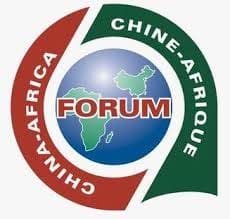Senegalese President Bassirou Diomaye Faye left Dakar on Sunday for Beijing, his first state visit outside the African continent. He will also take part in the Forum on China-Africa Cooperation from 4 to 6 September.
Before leaving for Beijing, where he will attend the next summit of the Forum for China-Africa Cooperation (FOCAC) from 4 to 6 September, Senegalese President Bassirou Diomaye Faye spoke to Chinese television channel CGTN.
He expressed his expectations for the summit and his first state visit to China, stressing the strategic importance of relations between the two countries and the crucial role of FOCAC in the development of the African continent.
Elected in 2024, President Faye inherited the co-presidency of FOCAC, a role held by Senegal since the 2018 summit in Beijing.
He sees this visit as an important opportunity to consolidate and expand Sino-Senegalese relations.
“The summit is an important opportunity to review the Sino-African partnership, consolidate achievements and identify new prospects for cooperation in mutually beneficial areas,” he said.
He also noted that this visit would be an opportunity to ‘renew and consolidate the relations of friendship and cooperation between Senegal and China, which we have elevated to the level of a comprehensive strategic partnership’.
Turning to the role of FOCAC, President Faye described it as ‘an innovative framework for South-South cooperation that has already proved its worth’, noting that since its creation in 2000, FOCAC has helped to set up structuring projects in Africa, inspired by the Chinese model, in various key sectors.
It is a platform for fruitful exchanges and dynamic partnership to address China-Africa challenges,” he said. He also said that FOCAC ‘strengthens the voice of Africa and China on the international stage by promoting equality, mutual trust, win-win cooperation, solidarity and mutual assistance’.
The Senegalese President welcomed the initiatives launched by Chinese President Xi Jinping at previous FOCAC meetings, in particular the nine programmes announced in Dakar in 2021 and the three additional projects presented in South Africa in 2023, focusing on industrialisation, agricultural modernisation and the training of talent in Africa.
“Senegal has witnessed the great achievements of these partnerships, particularly in the field of infrastructure with the implementation of the Belt and Road Initiative. Many roads, motorways, ports, airports and railways have been built,” he said.
He also highlighted the significant investments in agriculture, technical and vocational training, water and health.
President Faye added that ‘the pursuit of national sovereignty in all areas is a priority for my government, which is in the process of finalising Vision 2050 and the public policy framework that we intend to implement soon’.
“We are therefore working with all friendly countries and partners who are willing to help us achieve these priorities, including and especially China,” he said.
“My desire is to ensure that this cooperation is strengthened and taken to a higher level, especially in priority sectors such as agriculture, industrialisation, water, technical and vocational training and digitalisation,” he said.
He added that his government was working with “all friendly countries and partners who are willing to help us achieve these priorities, including and especially China”.
Turning to the Global South, President Faye stressed the importance of this alliance of developing countries in reforming the current international system.
“The transformation of the BRICS group into a broader Global South shows the extent to which the international system is being challenged and the urgent need to reform it to make it more inclusive, fairer and equitable in the interest of all,” he said, welcoming China’s efforts to promote joint cooperation and development.
Ahead of the 75th anniversary of the People’s Republic of China in October, the Senegalese President expressed his congratulations and admiration for the country’s achievements.
“With a policy of great reform and openness, China has made impressive progress on the road to modernisation, thanks to an approach that combines rapid economic development, poverty reduction and improving the living conditions of its people,” he stressed.
He also praised President Xi Jinping’s initiatives in the areas of global development, security and civilisation, describing them as “important contributions to strengthening multilateralism as a foundation for peaceful coexistence of peoples”.
AC/lb/jn/APA


